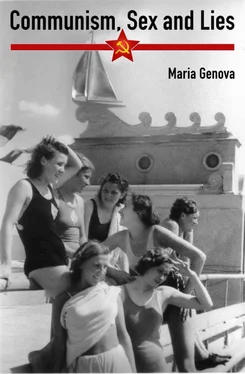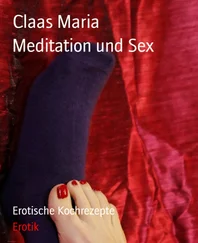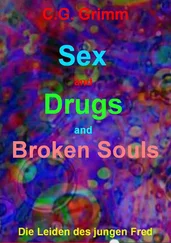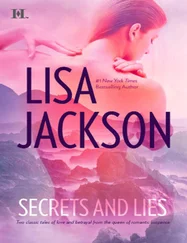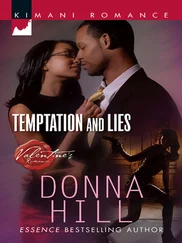The party was great. The music boomed out the giant speakers and we unsociably let the entire neighbourhood enjoy it with us.
‘Maybe we should turn the music down,’ the host said at about 2 a.m., after the neighbours had complained. That didn’t work, because everyone knew how to turn up volume, even the police, who came to check on us at 3 a.m. We eventually sent them home happy with a bottle of whisky. The system of corruption worked to everyone’s advantage, just like the system of thinking everything over twice. Even at parties we didn’t say what we thought or thought what we said, especially when it came to politics.
We were prisoners in time and didn’t know for how long. The West watched passively from the side-line and washed its hands in innocence. England even managed to give the Romanian leader Ceaușescu a knighthood, even though he was the cruellest of all communist leaders. Not only did he have his political adversaries assassinated, but he also carried out a disastrous economic policy which made Romania the poorest country in Europe. My grandmother would tell me in disgust about the scenes she had seen travelling through Romania. Straight on arrival she was besieged as a ‘rich foreigner’ by begging children who tried to get anything from her: from pens to sweets. I could hardly believe that our Romanian brothers were in such dire straits, because all communist countries helped each other. The Russians tried to steer the mutual relations as much as possible. Of course, this meant that things could go wrong, because there were 90 million people in total from seven different countries living under the influence of the Soviet Union. Romania apparently had the bad luck of going unnoticed in a severe spiral of poverty.
Despite all the lies for a long time we did not doubt that communism was better than capitalism. On the television, they repeatedly stressed that a democratic government with several parties was unworkable and we saw how Western politicians would turn on each other and how governments would fall suddenly. According to the reports Western citizens were far from happy and as proof we would see images of protests and strikes. We didn’t have that, because there was no reason to protest. Our planned economy didn’t possess the weaknesses of capitalism, where competition led to over-production, bankruptcies and labourers being laid off. We were lucky to be living in an orderly and just society.
According to reports the grain harvest increased each year and the factories broke their production records time after time. Of course, we thought it strange that we never that those record produces in the stores, but it was needless to say that we were not allowed to ask any questions about that. We suspected that the Bulgarian government exported the grain to Russia. We didn’t know how they done it, but since Khrushchev had come to power the Soviet Union had a shortage of grain and even imported it from capitalist countries. ‘Do you know why the Russian party leader won the Nobel prize?’ was the question in a well-known joke. ‘He was the first man in history who sowed grain in Siberia and harvested it in Canada.’
It was unfathomable why the planned economy led to a shortage of simple products. In a time when astronauts could travel to the moon, we struggled to buy a good bar of soap or a decent pair of sunglasses. Only humour could soften our pain, because you could turn things around in a joke. A man had to choose between the communist and the capitalist hell. First, he takes a peak at the capitalist hell and asks what they do there. ‘We cook you in oil and we cut you up into tiny pieces,’ the answer was. In the communist hell, he got exactly the same answer.
‘What’s the difference then?’ the man asks.
‘The only difference is that in the communist hell they sometimes don’t have oil, and other times no knives.’
Not only oil was scarce, but also electricity. Because our government exported so much to our ‘brother countries’, we often had to sit in the dark in the evenings. Very primitive, candles lit and holding philosophical discussions. This is only interesting if it doesn’t happen too often. I didn’t enjoy doing my homework to a measly light; it made me feel like a medieval monk. But that was no excuse for school not to make your homework. ‘You need to learn how to plan better,’ Comrade Taneva said. ‘You know what time the electricity will be cut off.’
That was true, because the times were published in the media beforehand and with a little goodwill I could take that into account. My parents managed better than me, because they left work earlier to cook and shower before the regime took effect. If they hadn’t finished their shower on time, then they had to finish in the dark.
Because the technicians were not that accurate with the switches, it often meant that people were stuck in elevators for hours on end, for example because they got in the lift at ten to six in the assumption that the regime took effect at six. Sometime neighbours would demolish the lift windows to get someone out who was panicking. Not through the window, that was quite small, but by pulling a certain switch. That way the elevator would go to the next floor.
People would look out their window to see which flat ‘went on’ first. At the first flicker, you heard people rejoice. If it took too long before the other homes were lit, you heard cursing from the football fans who were afraid that their favourite team would score during the electricity disruption.
The worst thing was that the electricity also went out during the last episode of one of the most favourite soap operas, which was equivalent to national mourning. A few smart guys took out their car batteries and manufactured a special connection so that they could see the end after all. The end was then passed on by word of mouth.
I tried to avoid Dimitar at school and that was quite easy. I noticed that he had been without a girlfriend for some time, but it did not occur to me to think that was my doing. Dimitar didn’t approach me. Until I met him once on a ski slope outside the city. He followed me and I decided to ski straight through the woods. I saw a small path further on that went up the mountain and let myself go. It was only at the last moment that I noticed that there was a stream in the bend. I tried to jump it. I almost thought I had made it, until one of my ski’s hit a stone. I fell in the icy snow, luckily just across the water.
‘Are you okay?’ Dimitar shouted. He had managed to come to a halt without falling.
‘Fine,’ I hastily said, even though I felt pain all over my body.
I suddenly fainted backwards with my knees locked. I hadn’t seen it coming.
I woke in DImitar’s arms.
‘How long was I out?’ was the first thing that occurred to me to ask.
‘Not that long. I slapped you a few times and then you woke up.’
‘You slapped me?’
Apparently, I must have felt better to sound so shocked.
‘And a kiss,’ he added.
‘How dare you!’
‘Calm down, I can never seem to do the right thing. No slapping, no kissing, what is it that you want?’
I hadn’t thought about that, so I decided to leave it.
Dimitar and I skied to the mountain hut.
‘I have a room here,’ he said. ‘You can leave your wet suit to dry. And don’t think I have an ulterior motive. I might not be an angel, but I’m not the devil either.’
I agreed to go to his room. I took off my wet suit and wrapped a blanket around me. We sat in silence on the bed. Every second of silence seemed to be filled with tense expectation.
‘Don’t you think we could make a go of it?’ he asked. I didn’t sense any provocation in his voice and that reassured me.
Читать дальше
